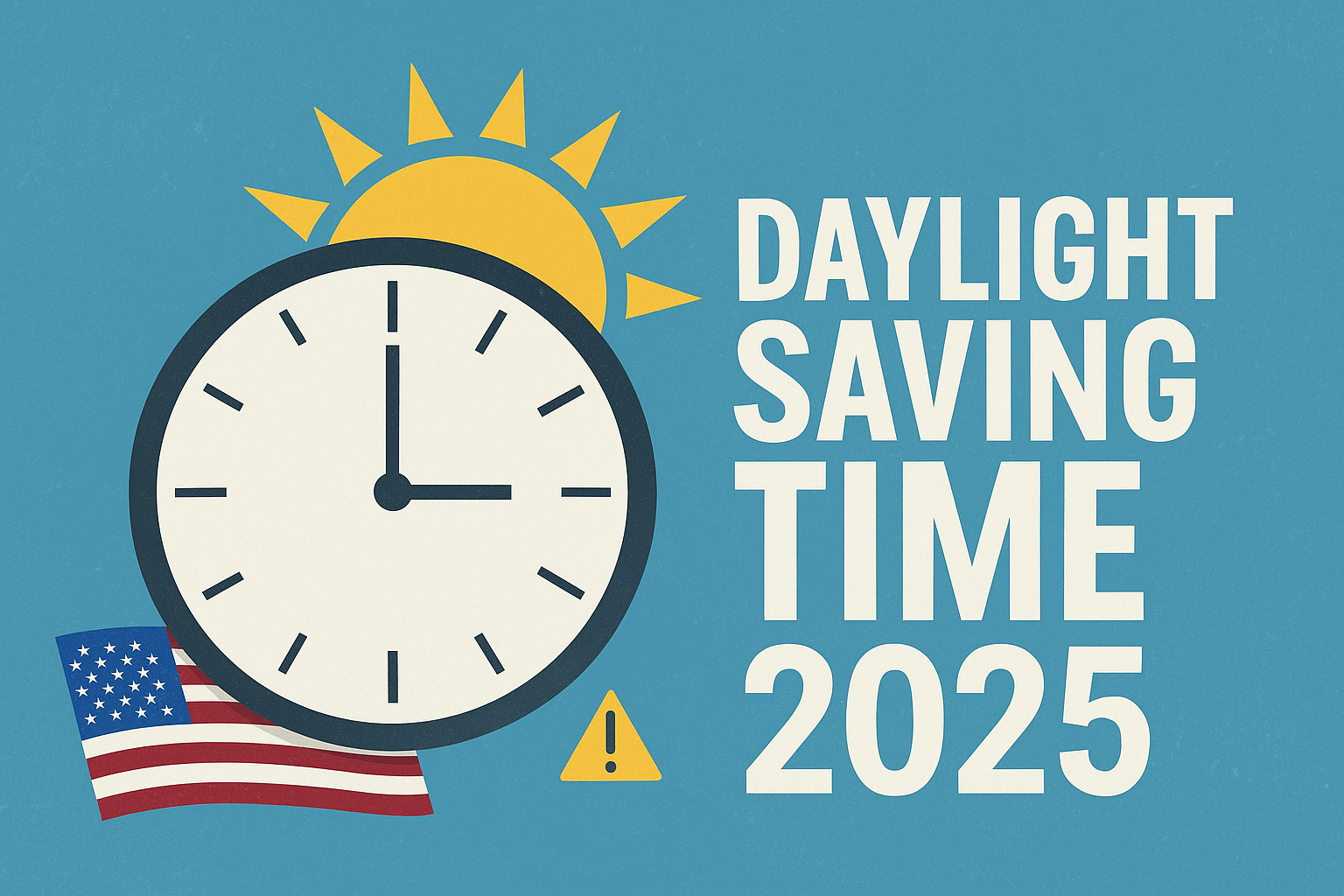As Americans prepare for the seasonal clock change, there’s a twist in Daylight Saving Time (DST) 2025: this year, clocks will “fall back” earlier than usual, giving people an extra hour of sleep sooner than expected. The change, while welcomed by some, is already sparking debates over whether DST should continue at all.
What’s Changing in 2025
Traditionally, Daylight Saving Time in the U.S. ends on the first Sunday in November. But in 2025, clocks will “fall back” on the last Sunday of October instead.
This means:
- The clock shift happens a week earlier than usual.
- Sunrise and sunset times will adjust sooner, affecting evening activities.
- Americans will gain an extra hour of sleep earlier than in recent years.
Why Did the Date Change?
Lawmakers and policy advocates have been debating the health and safety effects of DST. This year’s adjustment comes after:
- Pushback from medical experts who argue that extended daylight into late autumn negatively impacts sleep cycles.
- Road safety studies suggesting fewer evening accidents if standard time starts earlier.
- Energy research indicating that DST no longer produces the energy savings it once did.
How This Affects Daily Life
| Impact Area | Effect of Earlier Change |
|---|---|
| Sleep | One extra hour gained earlier than usual |
| Commuting | Brighter mornings, darker evenings arrive sooner |
| Health | Potential reduction in sleep disruption complaints |
| Retail & Entertainment | Shorter daylight evenings may reduce evening spending |
| Safety | Fewer accidents expected in late fall evening commutes |
The Ongoing Debate: Keep It or Scrap It?
While some Americans look forward to longer evenings in summer, others argue that switching clocks twice a year is outdated. Several states have already passed resolutions calling for either permanent DST or a return to permanent Standard Time. Congress has yet to pass a nationwide change, but momentum continues to build.
Frequently Asked Questions (FAQ)
When exactly do clocks change in 2025?
Clocks will “fall back” one hour at 2:00 a.m. on Sunday, October 26, 2025.
Why is it earlier this year?
Policy adjustments shifted the end of DST from November to October, following expert recommendations.
Do all states observe Daylight Saving Time?
No. Hawaii and most of Arizona do not observe DST. They stay on standard time year-round.
Will this be permanent?
Not yet. The date change applies to 2025, but future years may continue to evolve depending on federal legislation.
What’s the main benefit of falling back earlier?
Earlier brighter mornings during late October commutes and a potential health benefit by reducing sleep cycle disruptions.
Key Takeaway
In 2025, Americans will fall back earlier than usual as Daylight Saving Time ends in October instead of November. While the change gives everyone extra rest a week sooner, it also reignites the national debate: should the U.S. keep changing clocks at all?
